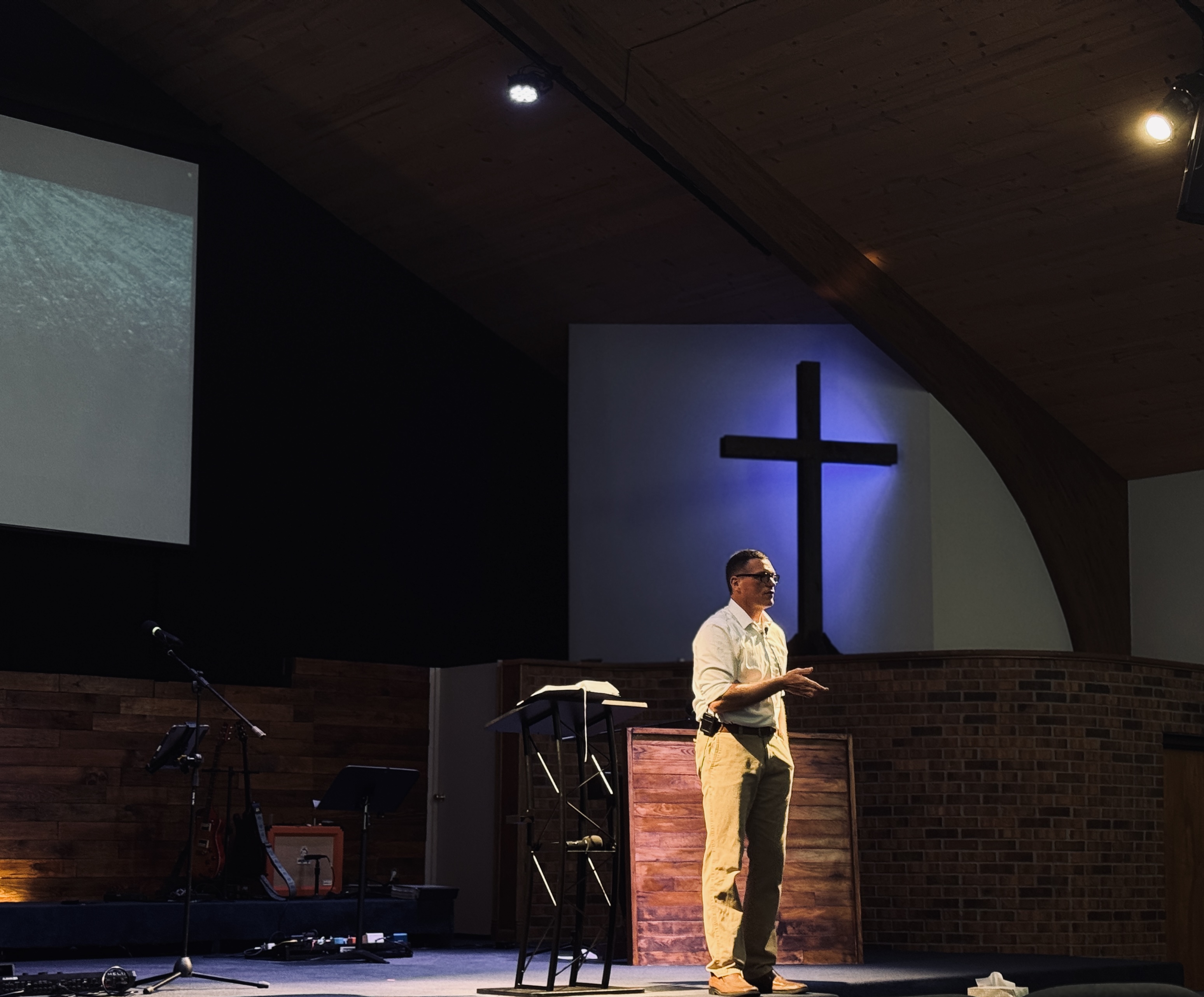Living as People of the Truth - Part 1

What Is Truth? A Question We’re Still Asking
Remember Y2K? If you just had a flashback to dial-up internet and Nokia brick phones, you're not alone. But more than a nostalgic trip, Y2K and the panic surrounding it can actually teach us something about the spiritual moment we're living in today—one marked by confusion, dismissal, and deep questions about truth.
Part 1 of 7 in the series: “Living as People of the Truth in a Half-Truth, My-Truth, No-Truth World”
Let’s take a trip—not across town or the country, but back in time. Back to the late 90s.
What comes to mind?
Maybe you hear the screeching static of dial-up internet, that dying-robot sound before you could finally go online. Downloading one photo took seven minutes and a small miracle. Maybe you remember baseball players who looked like superheroes… and nobody cared why, because home runs were fun. You probably had to print directions before road trips—on paper!—only to get lost and ask actual human beings for help. And unless you were rich, your cell phone didn’t exist. If you were rich, you had a Nokia brick that could survive a nuclear event and let you play Snake.
It was a simpler time.
And then came Y2K.
For a short, strange window of time, we believed our toasters might explode at midnight. Computers might think it was 1900 again, planes could fall from the sky, and society might collapse. It sounds ridiculous now, but back then? It was a global panic. News stations ran 24/7 coverage. Emergency kits flew off the shelves. People cashed out their bank accounts. Pastors preached end-time sermons. And for some reason, baked beans became our survival food of choice.
Then January 1, 2000 arrived—and nothing happened.
Y2K has since become shorthand for overreactions. A global freakout over nothing… right?
Not exactly.
The reason disaster didn’t happen was because behind the scenes, programmers fixed the issue. Governments responded. Tech teams hustled. The threat was real—it just didn’t become a catastrophe because it was taken seriously.
Now imagine if no one had listened. If the warnings had been mocked, ignored, or brushed off.
That’s what I want us to think about—not Y2K, but the way we respond to truth.
Does God still speak today? I believe He does. He warns. He corrects. He calls. But many people roll their eyes. Shrug it off. Laugh it away. Pretend truth will just go away if we stop paying attention to it.
But truth doesn’t disappear just because we ignore it.
In fact, ignoring God’s truth can lead to something worse than frozen electronics or missed directions—we risk spiritual blindness.
And that’s not a new problem.
In John 18, there’s this tense, often overlooked moment: Jesus, already betrayed and arrested, stands before Pontius Pilate—the Roman governor with the authority to free or execute him. Pilate doesn’t care about prophecy or theology. He cares about peace, power, and keeping Rome happy.
He questions Jesus: “Are you the king of the Jews?” Jesus responds by speaking about a kingdom not of this world.
Pilate presses: “So, you are a king?”
And Jesus says something absolutely crucial:
“You say that I am a king. In fact, the reason I was born and came into the world is to testify to the truth. Everyone on the side of truth listens to me.” (John 18:37)
Pilate looks Truth in the face—and shrugs.
“What is truth?”
Then he turns and walks out before Jesus can say another word.
He doesn’t stay for the answer. He doesn’t realize the answer is standing right in front of him.
That question—“What is truth?”—didn’t come from curiosity. It came from cynicism. You can almost hear the sarcasm: “Truth? Please. Who even knows anymore?”
Sound familiar?
We live in a world where truth feels fluid. Relative. Optional. Where emotions are treated like evidence and conviction is seen as arrogance. Where phrases like “That may be true for you, but not for me” pass as deep thinking.
But like Ecclesiastes says: “There is nothing new under the sun.” (Ecclesiastes 1:9)
Pilate’s shrug wasn’t the last. It echoes through history, through every generation that questions whether truth really matters… and every one that finds out the hard way that it does.
Coming Up in Part 2:
What is truth, really? In the next post, we’ll explore how Jesus didn’t just speak the truth—He is the Truth. If we want to navigate this confusing world, we have to start by understanding what real truth is… and what it isn’t.

